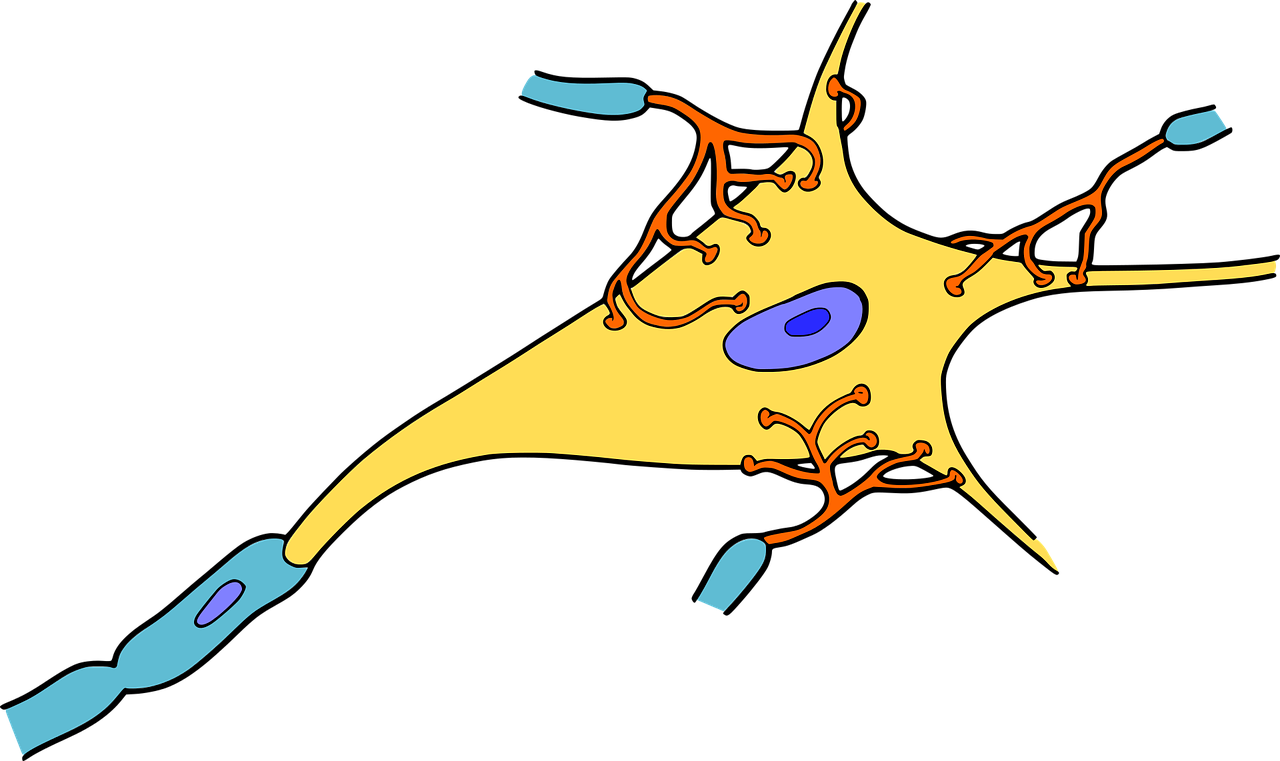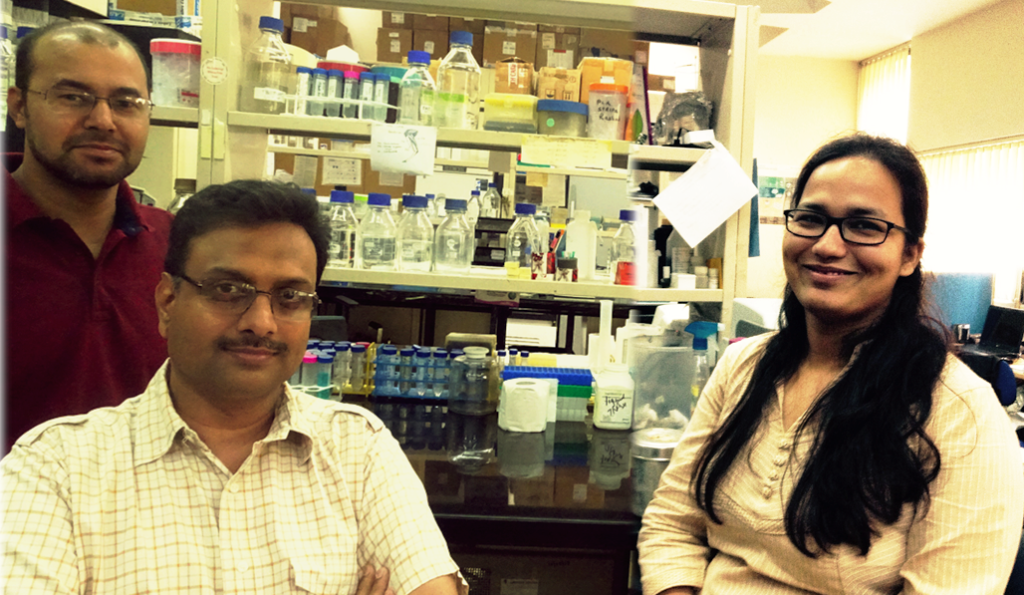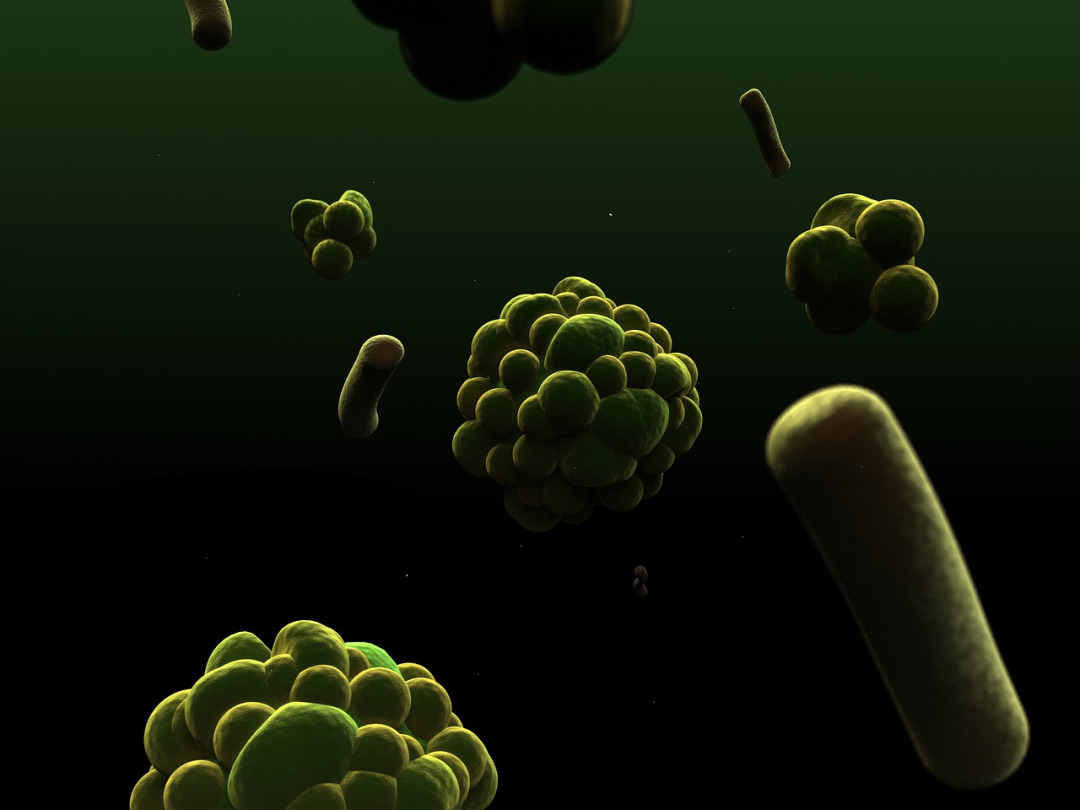
Glycogen in Neurons of Degenerating Brains Is Beneficial
- News
- 2.2K
Healthy neurons do not store glycogen – the main source of energy storage for cells – while they do possess the machinery for glycogen synthesis in an inactive state. At the same time, neurons in degenerating brains are known to accumulate glycogen. A team of Indian scientists has figured out that glycogen in neurons actually has a protective role in patients with neurodegenerative disorders like Alzheimer’s and Huntington’s.

Dr. S. Ganesh and his team members
For long, scientists have been trying to find the specific role of glycogen in neurons, especially in brain diseases like Huntington’s, Lafora, Alzheimer’s etc. with some believing it be neurotoxic. The new study led by Prof. Subramaniam Ganesh of Indian Institute of Technology, Kanpur (IIT-K) suggests that glycogen has a protective role in neurons of patients suffering from neurodegenerative disorders.
Glycogen synthetic machinery in healthy neurons usually remains in an inactive state. In this machinery, an enzyme called glycogen synthase catalyzes the formation of glycogen. Using cellular and animal models of Huntington’s disease, the researchers have shown that a high level of cytotoxic mutant Huntingtin protein triggers more glycogen synthesis in neurons by activating glycogen synthase. They observed that increased level of glycogen synthase protects neurons from the cytotoxicity of the mutant Huntingtin protein.
“Our findings establish that glycogen synthase is required for neurons to survive during stress. We also show that glycogen thus synthesized prevents aggregation of abnormal proteins, and helps in their clearance. These findings might open up new avenues of therapeutic interventions,” explained Dr. Ganesh.
The activation of glycogen synthase is harmful to healthy and happy neurons, and this may explain why glycogen granules are not seen in normal neurons. This means glycogen accumulation in degenerating brain could possibly represent a failed attempt of neurons to survive during the stress. “Our work establishes the neuroprotective role of glycogen synthase in Huntington’s disease models and thus discovers a previously unknown function of glycogen synthase in neuronal physiology”, he added.
“It is an important finding on the protective role of glycogen synthase in neurodegenerative diseases which may have translational relevance,” commented Prof. Sathees C. Raghavan from Indian Institute of Science, who is not connected with this study.
“These findings may open exciting possibilities for developing new therapeutic approaches for the neurodegenerative diseases which are becoming serious health issues in human populations in recent times,” said Prof. S. C. Lakhotia from Banaras Hindu University, who is not a part of this study.
The study has been published in journal Cell Death and Disease. The research team included Anupama Rai, Pankaj K. Singh, Virender Singh, Rohit Mishra, Ashwani K. Thakur, and Subramaniam Ganesh (IIT-Kanpur); Vipendra Kumar, Nihar R. Jana (National Brain Research Centre, Manesar); Anita Mahadevan, Susarla K. Shankar, (NIMHANS, Bengaluru). This research work was funded by Department of Biotechnology. (India Science Wire)
By Ratneshwar Thakur
Journal Article
If you liked this article, then please subscribe to our YouTube Channel for the latest Science and Tech news. You can also find us on Twitter and Facebook.



